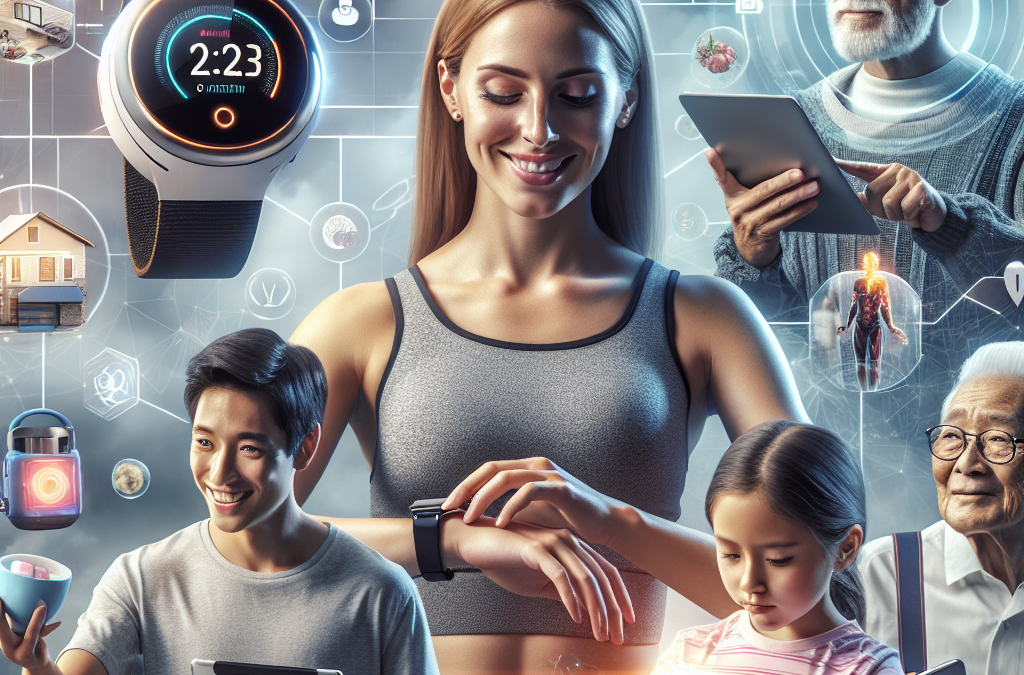
Unexpected Ways AI Is Changing Your Daily Life
How AI Changes Your Morning Routine
Waking up today often involves more than just an alarm clock. AI changes the way your day begins in subtle yet impactful ways. Smart home devices equipped with AI adjust lighting and temperature based on your preferences, ensuring a gentle start.
Personalized Wake-Up Alarms
AI-powered alarms assess your sleep patterns using wearable devices or smartphone apps. These alarms wake you during the lightest sleep phase, helping you feel refreshed and alert. For example, apps like Sleep Cycle use AI to track sleep cycles and optimize wake-up times.
Smart Coffee Makers and Thermostats
Smart coffee machines can predict your wake-up time and brew coffee automatically. Similarly, AI-controlled thermostats adjust your home’s temperature for maximum comfort right from the moment you get out of bed. Devices like Nest Learning Thermostat learn your schedule and habits to improve efficiency.
AI Changes Communication and Social Interactions
From emails to social media, AI now plays an invisible role in shaping how we connect with others. Its influence stretches across personal and professional communications, streamlining tasks and enhancing experiences.
Smart Email Responses
Many email platforms now use AI to suggest replies, saving time on routine messages. Gmail’s Smart Reply feature offers context-aware quick responses, allowing you to manage your inbox more effectively.
AI-Powered Language Translation
Language barriers are shrinking thanks to real-time translation tools powered by AI. Whether you are chatting via text or video, apps like Google Translate and Microsoft Translator break down communication obstacles, promoting global interaction.
Everyday Shopping Transformed by AI Changes
Retail experiences today are deeply influenced by AI, often without consumers realizing it. From product recommendations to inventory management, the technologies behind the scenes revolutionize shopping habits.
Personalized Recommendations
AI analyzes your browsing and purchase history to suggest products you are likely to want, improving user experience and satisfaction. Amazon and Netflix are prime examples where AI-driven recommendations boost engagement.
AI in Inventory and Supply Chain
Retailers use AI to predict product demand, manage stock levels, and optimize delivery routes, minimizing out-of-stock situations. This ensures that consumers get what they need faster and more reliably.
Enhancing Health and Wellness Through AI Changes
AI’s role in health is rapidly expanding, providing tools for better self-care and disease prevention outside traditional clinical settings.
AI-Powered Fitness Apps
Fitness apps incorporate AI to tailor workout plans based on your progress, goals, and physical condition. Examples include Fitbit and MyFitnessPal, which use data analytics to recommend workouts and track nutrition.
Mental Health Assistance
AI-driven chatbots and virtual therapists offer on-demand mental health support. Tools like Woebot provide users with cognitive behavioral techniques and emotional tracking, making mental health resources more accessible.
AI Changes in Transportation and Navigation
Traveling has become easier and more efficient due to AI applications in vehicles and navigation systems.
Smart Navigation Systems
AI integrates real-time traffic data and personal preferences to optimize routes, saving time and fuel. Google Maps and Waze use AI algorithms to reroute drivers around congestion or accidents dynamically.
Emergence of Autonomous Vehicles
Self-driving cars represent the future of transportation, promising enhanced safety and convenience. Companies such as Tesla and Waymo continue developing AI systems capable of understanding complex road environments.
The Impact of AI Changes on Entertainment Consumption
Entertainment choices are increasingly influenced by AI, which personalizes content and creates immersive experiences.
Customized Streaming Experiences
Streaming platforms curate playlists and recommend shows using AI that learns viewing habits and preferences. Spotify and Netflix highlight how AI improves content discovery.
AI in Gaming
In gaming, AI controls non-player characters and dynamically adjusts difficulty, enhancing engagement and challenge. AI-driven game designs create more realistic and adaptive environments.
Summary of AI Changes in Daily Life
AI changes have woven themselves deeply into daily routines, from how mornings start to how we communicate, shop, manage our health, navigate, and entertain ourselves. This technology offers convenience, personalization, and efficiency, often behind the scenes but profoundly impacting experiences.
To stay ahead in this evolving landscape, embrace AI-powered tools that fit your lifestyle and needs. Explore smart home devices, health apps, or AI communication assistants to unlock new levels of productivity and well-being.
For expert guidance on integrating AI into your daily life or business, visit khmuhtadin.com to connect and learn more about harnessing AI effectively.
